By JULIE MINDA
An institute that Providence St. Joseph Health launched in November 2021 is guiding leaders across the system in developing a richer spirituality and inner life so that they can better engage in carrying out Providence's mission.
The Mission Leadership Institute includes an academy that provides hundreds of Providence leaders at a time with experiential learning, presentations from experts on mission-based leadership and team building with colleagues across the system. Another
institute program helps aspiring and new mission leaders to discern their calling. And a third offering promotes the spiritual growth and well-being of established mission leaders.
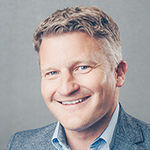 Schreiber
SchreiberMartin Schreiber is vice president of the Mission Leadership Institute. He says the institute focuses on forming leaders at every level of the organization — at facilities throughout Providence — for centering their work around mission. "We're responding
to a need for a new type of leadership — for leaders who are more richly developed."
He says the institute is guiding participants in self-development, self-renewal and community building. "We want them to be able to bring their whole self" to their work, he says.
Search for meaning
Schreiber, who has a doctorate in education and a master's in divinity, has been working in mission leadership roles in Catholic health care for a decade — first at what was Presence Health and then
at Chesterfield, Missouri-based Mercy before joining Renton, Washington-based Providence in June 2020. (In 2018 Ascension acquired Presence Health, which was an Illinois health system.)
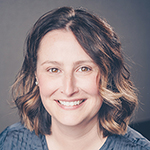 Hasan
HasanIn addition to Schreiber, the institute's full-time staff includes Crystal Hasan and Nancy Jordan. Hasan is senior program manager and leads the institute's operations and program implementation. Jordan is associate vice president of the institute and
directs curriculum and instruction.
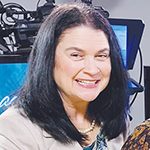 Jordan
JordanSchreiber, Jordan and Hasan were creating the institute during the height of the pandemic when Schreiber says so many health care staff and leaders were burning out and pondering questions of life's meaning — and this brought to the fore the need to help
Providence staff nurture their well-being and growth.
Schreiber met with mission leaders at Providence and at other health care facilities across the U.S. to generate ideas for the institute's programming.
The institute's offerings complement Providence system and facility formation programming, says Schreiber.
Culture bearers
The institute recruited participants by asking nearly 1,000 executives across Providence's seven-state network to nominate leaders on their teams who those executives view as "culture bearers," people
who influence and guide the culture in their facilities. The nominees could be from any department in any of Providence's facilities. The institute selected its first cohort of about 300 associates last year, aiming for diversity, including when it
came to participants' geographic locations, backgrounds and job roles.
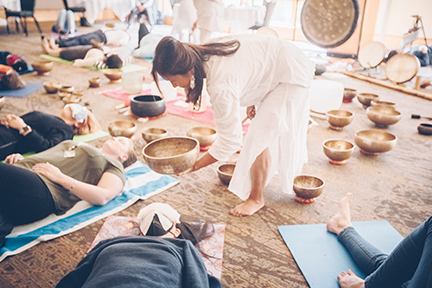 At a 'sound bath' in September, participants in the Providence St. Joseph Health Mission Leadership Institute relax as they concentrate on the tones emanating from a singing bowl. The curriculum exposes people to sensory experiences to heighten their
observation skills.
At a 'sound bath' in September, participants in the Providence St. Joseph Health Mission Leadership Institute relax as they concentrate on the tones emanating from a singing bowl. The curriculum exposes people to sensory experiences to heighten their
observation skills.Cohort members have been meeting every other month, and will do so for 15 months. Each meeting lasts two days. The institute's staff has broken the cohort into geographically determined pods that range in size from about 20 to 60 people each. Members
meet in-person at locations central to their pod group.
Each academy session includes reflections, presentations, discussions and sensory experiences. The presentations on mission topics are delivered in live broadcast format by people the institute calls luminaries. Speakers have included Chris Lowney, CommonSpirit
Health board chair; Maureen Bisognano, president emerita and senior fellow of the Institute for Healthcare Improvement; Carolyn Woo, past president and chief executive of Catholic Relief Services and now fellow for global development at Purdue University;
Sr. Mary Haddad, RSM, CHA president and chief executive officer; and Dr. Ira Byock, founder and senior vice president for strategic innovation for the Institute for Human Caring at Providence.
The topics the presenters explore have to do with key Catholic health care principles including human dignity, care that addresses people's needs holistically, empowerment of the vulnerable, the pursuit of the common good, the desire for justice, the
importance of stewardship and the essentiality of the Catholic Church's health care ministry. Questions and discussions are encouraged.
Interspersed with the presentations are interactive learning labs that engage the senses — and the intuition — of academy participants to make them more astute observers and more attentive listeners. Drawing on sensory experiences while cooking, "forest
bathing" or listening to play lists curated by a symphony director, teaches participants to use their senses be more present and fully engaged in the moment, Hasan explains.
Jordan says each academy pod completes a "signature assignment," which she describes as "a collective capture of participant learnings in an electronic portfolio." She says through word, photos, videos, and other expressions, pod members document concepts
and experiences that inspire them during their time in the academy.
Academy participants earn a certificate worth 12 graduate credits in mission leadership from the University of Providence.
The next academy cohort starts in November.
Mission leader support
The institute is offering a graduate certificate worth 12 graduate credits in mission integration from the University of Providence for Providence associates who are discerning a mission leadership
vocation. This mission integration programming is similar to the other graduate certificate but contains additional coursework related to mission integration for leaders.
Aspiring mission leaders are paired with experienced ones to have dialogues on topics covered in the coursework. The institute calls the aspiring mission leaders "pilgrims" and their partners "companions."
The institute also offers a "masterclass" for more seasoned mission leaders at Providence that takes a deep dive into mission leadership topics.
Schreiber says that while the overwhelming majority of institute students are Providence staff, there are a few Seattle archdiocese leaders taking part in the academy. The system plans to open program participation to leaders from other organizations
as well, including ministry systems and facilities. Academy participants from outside Providence will pay tuition.
Sacred space
Heidi Davis manages a community teaching kitchen and food pantry for Providence Milwaukie Hospital in Milwaukie, Oregon, about 7 miles outside of Portland. Programming is focused, Davis says, on nourishing
wellness while improving food security through nutrition counseling, culinary medicine, food pharmacy and community outreach. Culinary medicine teaches patients what foods are best for their individual conditions, and food pharmacies increase access
to healthy foods.
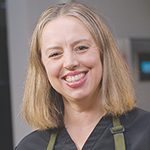 Davis
DavisDavis is part of the academy class that began in November 2021 and concludes this month. She's built relationships with colleagues throughout her region, many of whom she'd never met before. She says her pod mates are a "tribe of people to talk with"
about a range of mission-related topics.
Through large- and small-group discussion, reflections and resources and personal journaling, she says she's been growing spiritually. Davis says she's gained a greater understanding of what it means to be a mission-centered leader and how to nurture
that aspect of herself. Alignment with mission "calls for internal and external congruency," she says. She adds that the institute has given academy participants a sacred space to explore how they can become more engaged and invested in their role
as leaders in a Catholic health ministry.
"At Providence mission is the compass for leadership at every level," she says.
Read related coverage in Health Progress